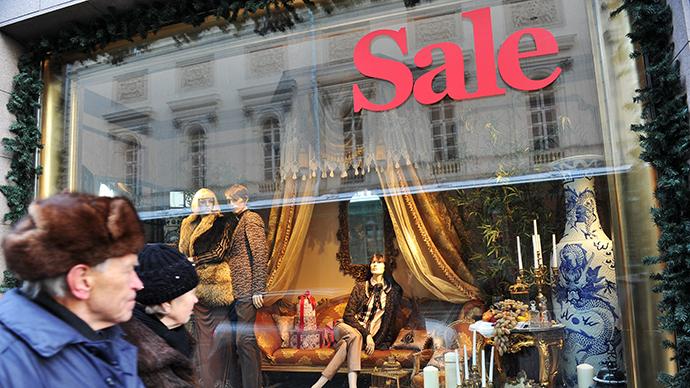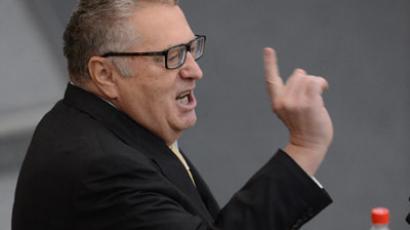Grammar Nazi style: Russian MPs aim to ban foreign words

The Russian language needs legal protection from the “conquering march” of foreign words, sponsors of a bill before the State Duma believe. It seeks to ban all words borrowed from other languages and fine those who dare to use them in public.
The bill submitted by members of the Liberal Democrat party goes even further, administering punishment for any “violation of the norms of the contemporary Russian language.”
According to the justification for the proposed legislation submitted by the lawmakers, their vocabulary condemnation targets words that came into Russian from English after the late 1980s and the collapse of the Soviet Union. They specifically mention the Russian words that ended up as ‘dealer’, ‘boutique’, ‘manager’, ‘single’, ‘OK’ and ‘wow’.
The legislators suggest Russians use – sometimes archaic – substitutions or face a penalty. Ordinary linguistic offenders would have to pay up to an $80 fine, while organizations would have to fork out as much as $1,650. The latter are even threatened with “confiscation of the object of the administrative violation,” whatever that means.
The document apparently aims
to snap freeze Russian. As with any other tongue, it undergoes
natural evolution, with some words becoming archaic and phasing out
of use and others being born and gaining popularity.
Over the centuries Russians borrowed thousands of words from Mongol conquerors, Byzantine priests, French and Italian artists, German engineers and, lately, English-speakers. Yet in many generations there were those vocally calling on preserving the traditional language and protecting it from foreign influence.
The sponsors of the bill are
apparently fine with the linguistic legacies of the past and want
to root out only the newcomers, specifically those which have
substitutes in Russian. So the bill would apparently spare the
words ‘democratic’, ‘liberal’ and ‘party’ used in the political
sense, all of which were borrowed from Greek and Latin
respectively. The same goes for the word ‘Rossiya’ – Russia – which
is of Greek origin as well, and is first mentioned in Byzantine
documents.
The legislators cite the
French and Polish laws on protection of national languages, as well
as the experience of the francophone Canadian province of Quebec as
the inspirations for their draft law.
The majority United Russia
party has already branded the bill as populist stunt with zero
chance of passing.
United Russia itself is not without a taste for linguistic
lawmaking. They submitted a bill - currently floating in the
parliament - which would fine the media for use of obscenities. The
discussion of the draft legislation had its peculiar moments, for
instance when one MP suggested it would cover the entire internet,
a place where “verbal hellspawn” reigns, she said.
The initiative to ban foreign
words has so far attracted few comments in the Russian blogosphere,
with most simply re-posting the news. Those who did comment would
probably be subject to the profanity bill, if it were to cover the
internet.














